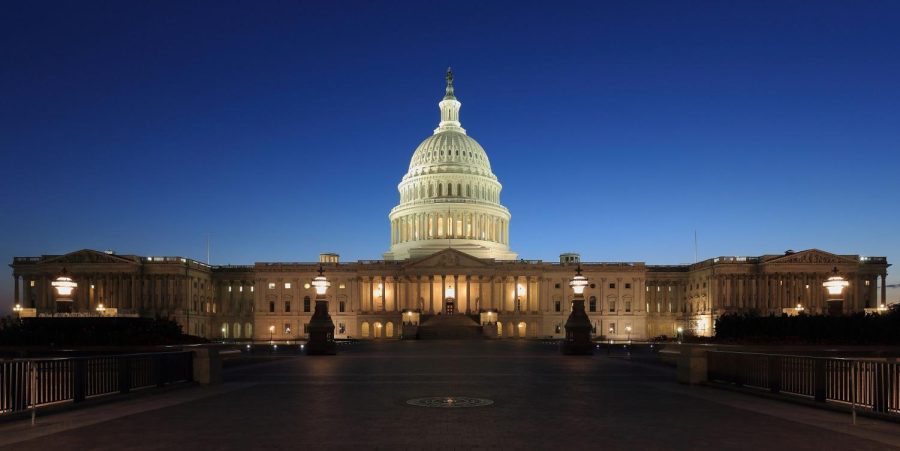What You Need To Know About the Bipartisan Infrastructure Bill and Build Back Better Act
The East Front of the US Capitol building which houses the House of Representatives and Senate. Photo Credits to Wikipedia-Martin Falbisoner.
On Friday November 5, the House of Representatives passed the $1.2 trillion bipartisan infrastructure bill, officially sending it to President Biden’s desk for signing.
Originally, the infrastructure bill was meant to be passed alongside the more inclusive Build Back Better Act. However, the two bills were separated after conflicts between moderates and progressives in Congress over the contents of the Build Back Better Act.
On Friday November 15, the Build Back Better Act passed the House of Representatives for a total of $1.7 trillion. This is down from the originally proposed $3.5 trillion price tag. At the time of writing, the bill will also need to pass in the Senate to reach President Biden’s desk and be signed into law.
The enacted bipartisan infrastructure bill consists of only hard infrastructure, including funding for repairing roads and bridges, expanding and modernizing the rail systems, improving internet transmissions and increasing the number of charging stations for electric vehicles.
Since it does not contain the same social spending as the Build Back Better Act, it has support from both Democrats and Republicans, earning it a bipartisan title.
History teacher Mark Flamoe believes that what makes the bill relatively uncontroversial is also what makes it important.
“I mean roads and bridges, the least glamorous parts…are probably the most necessary just because that’s the backbone of every other aspect of our country,” Flamoe said.
Senior Vanessa Auth thinks that infrastructure, when forgotten, can be dangerous for people and the economy.
“A lot of people on the west coast tend to forget that things on the east coast are really old…those roads are from the 1800s, they need help,” Auth said. “If you have a pothole in a road that might prevent trucks from getting places which leads to supply chain issues…So I think it’s important that every so often we really make an effort, granted we maybe should have done it a little sooner so it wasn’t so expensive, but I think that it’s important that it gets passed.”
For Jesuit students, the bill will help shape the economy that they graduate into.
“The spending is scheduled to be spent over 10 years so I think this is good for Jesuit students because it is going to be building the backbones of our country by the time they get out of college,” Flamoe said.
Senior Zane Godil also hopes it will positively affect the Portland metro area by assisting a highly congested area.
“Hopefully that bridge that they have been talking about between Portland and Vancouver, the max bridge, will finally get built,” Godil said.
Since the Build Back Better Act has not yet passed the Senate, there is not a final version of the contents of the bill. However, in the version passed by the House of Representatives there is funding for expanding Medicare and the Affordable Care Act, extending child tax credits for an additional year, universal pre-K and fighting climate change, among other things.
For Jesuit students and Gen Z as a whole, Flamoe believes the climate plans are especially of interest.
“I think the element in the Build Back Better Bill that deals with climate is going to be the biggest part of the bill going forward for Jesuit students and for our country as a whole,” Flamoe said.
All of the expected programs in the bill mean that it will be quite costly for the federal government to enact.
“If the Build Back Better Act passes, and it’s just under 2 trillion dollars, that’s going to be the biggest investment in social spending really since the Great Society,” Flamoe said.
For many moderate Democrats and Republicans the high price of the bill, especially combined with other recent spending, is a point of contention.
“Both bills combined are about 3 trillion dollars right now. That’s a lot of money especially since we do have around a 6% inflation rate so the government injecting $3 trillion dollars in cash into the economy might not be the best long term for our inflationary expectations,” Godil said.
Many politicians echo this concern including House Minority Leader Kevin McCarthy whose speech before the final House vote highly criticized the bill’s contents and projected price.
With a narrow Democratic majority in the Senate (50-50 with Vice President Kamala Harris acting as a tiebreaker) the bill’s success is uncertain.




